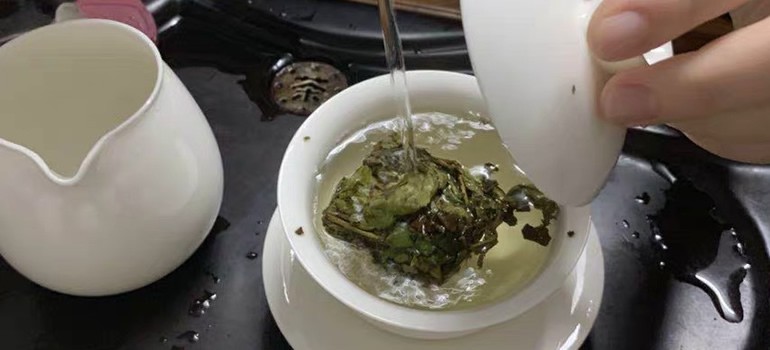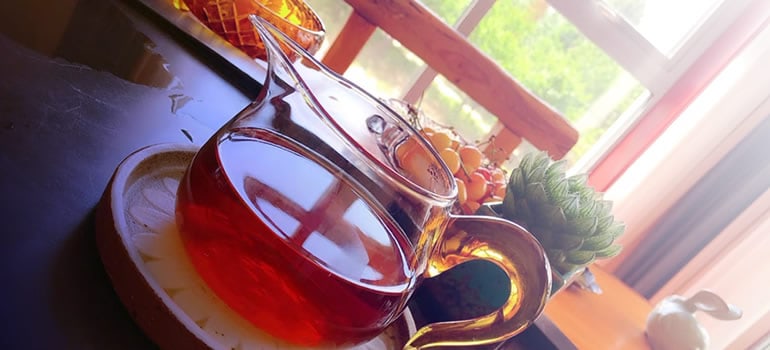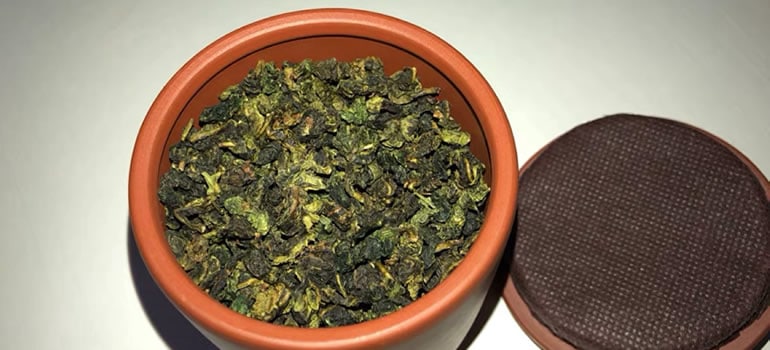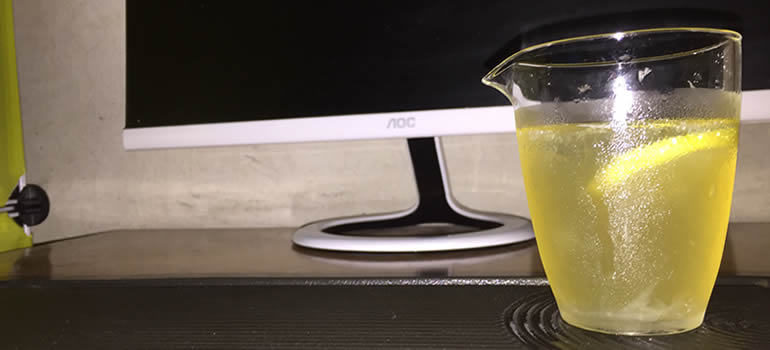Fermentation has been a part of human history for thousands of years.
Throughout history, many civilizations have used fermentation in order to manufacture different beverages like beer, wine, and cider.
However, did you know that very similar things happen when we are making bread? It doesn’t just end here, other products like cheese and vinegar go through fermentation as well.
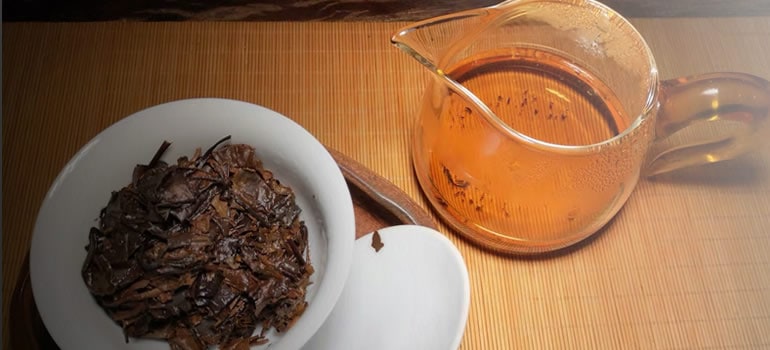
Does tea ferment into alcohol? If provided the necessary conditions and environment, tea can be fermented into alcohol. Since tea itself cannot ferment, there needs to be sugars or carbohydrates present, which can kick-start the process of fermentation. And in this case, tea may be considered more of a flavoring agent.
But what exactly you will end up will depend on a few factors.
Fermentation is a process that may be considered both complex and simple depending on how you look at it.
So let’s take a look at what happens during fermentation.
How Does Fermentation Work?
Let’s begin with fermentation.
Fermentation may look like a relatively complex biological process. During fermentation, a few things happen. By having a general understanding of how the fermentation process works, we can better understand if tea can ferment and if it does how we can do it.
First, we need to establish an important detail. There are two main types of fermentation:
- Ethanol fermentation – Ethanol fermentation is what we are interested in here as this is the process of creating alcohol
- Lactic acid fermentation – It happened in some bacteria and the skeletal muscles if there are low oxygen levels.
1. How Does Ethanol Fermentation Work?
Ethanol fermentation happens done by some kinds of yeast and some beneficial bacteria.
In order to start ethanol (alcohol) fermentation, you need to have a few ingredients first.
- Glucose.
- Yeast.
First, you need glucose (also known as dextrose), which is a type of simple sugar.
When the process of alcohol fermentation begins, the yeast is going to feed on the glucose, and as a result, it will create two molecules of pyruvate. This process of the yeast breaking down the glucose is known as glycolysis.
Then, these two molecules of pyruvate are going to be converted into two molecules of carbon dioxide and two molecules of ethanol (or alcohol). This process is what is known as alcohol fermentation.
2. Why Does Fermentation Happen?
Fermentation is a process that is initiated by the yeast. So why does the yeast do that?
Interestingly enough during the process of glycolysis, two molecules of ATP (Adenosine triphosphate) are generated. And this is the main reason why yeast interacts and breaks down sugar – to generate ATP.
ATP is very important as it is often referred to as the energy currency of the cells. Cells function thanks to the ATP. So yeast needs the energy to stay functioning (or alive if you will), and it achieves that through the breakdown of sugar.
During the process of fermentation, yeast can kind of restart the whole ATP generation process all over again. And it just so happens that the by-product is alcohol … and a little carbon dioxide.
Food and Fermentation
Basically, fermentation is converting carbohydrates into alcohol, carbon dioxide, or organic acids that have preservative properties.
Now that we have a more in-depth understanding of what and how fermentation works let’s take a look at the actual implementation we have found for fermentation in our daily lives.
The first way we use fermentation is for the making of alcoholic beverages:
- Fruits can be made into wine, cider, and more.
- Grains can be made into beer, whiskey, and more.
- And starchy foods can be made into vodka, gin, and more.
And on the other hand we have:
- Fermentation can be used in bread preparation since carbon dioxide can act as a leavening agent.
- And the organic acids from fermentation can be used as preservatives and flavoring.
What Is the Purpose of Fermentation?
Fermentation has several useful properties.
- To improve nutrient density in the food.
- To make food tastier.
- To reduce the amount of antinutrients.
- As a preservative food for longer storage.
- As a way to make food easier to cook and digest.
Can You Ferment Tea into Alcohol?
Tea, on its own, cannot be fermented because fermentation is the process of converting carbohydrates or sugars into acid or alcohol.
For tea to ferment, you need to have the right conditions for the processes of glycolysis and fermentation to take place.
- So first we need yeast. But yeast on its own will not do anything as it requires a fermentable product that will allow the yeast to have something to consume and thrive on.
- And the second must-have is some kind of sugar (even honey can do the work)
When you provide the basic ingredients that will jump-start the fermentation process, you will have an alcoholic drink at the end. If there are loose tea leaves in the mixture, they will infuse and leach their particular taste into the beverage.
Depending on the amount of tea that is used, the taste can be very bitter and strong due to the tannins found in tea leaves.
For as long as there are the right conditions that will not inhibit the fermentation process of the yeast, then tea can be fermented.
The tea itself will not bring a lot of things to the actual fermentation process.
The real question is always going to be concerning the actual taste you will end up with. In a way, tea used can be considered a flavoring agent.
1. What Is Kombucha?
Kombucha is a popular type of fermented tea with very low alcoholic content. Typically Kombucha has about 0.5% alcohol. It has a distinct and tangy taste to it.
Even though it is very low on alcohol Kombucha tea preparation follows the same fermentation process as we have seen above.
The yeast that is used for Kombucha is known as a symbiotic colony of bacteria and yeast (SCOBY). White sugar is used to provide energy to the yeast. In addition to that, sometimes distilled white vinegar is used in order to create an acidic environment.
Kombucha is made with black or green tea, and there are a lot of health benefits that are usually associated with its consumption because it has a high content of probiotics. However, there are no scientific proofs of these claims for now.
2. What Is Pu’erh Tea?
Pu’erh tea is definitely not your regular tea.
Although it is made of the same plant that green, black, or oolong tea are made of there is something that makes it unique.
Pu’erh tea is left to ferment naturally.
Just like wine Pu’erh tea is believed and considered to get better with time.
So the longer it has been aged for, the better the quality of the tea. It has high amounts of antioxidant polyphenols.
Pu`er tea is believed to have many different health benefits like:
- It provides us with more energy and better mental focus.
- It is great for weight loss.
- It improves mood.
- It lowers cholesterol.
- It improves bone density.
Oxidation and Fermentation
I want to point out that fermentation and oxidation are not the same things. Frequently they may be used interchangeably, which is not correct as they are different types of processes.
As we have learned, fermentation is a process of converting carbohydrates into alcohol through the use of different beneficial bacteria and microorganisms (such as yeast). In the process of fermentation, food is often enhanced in specific ways as well.
While oxidation, on the other hand, happens naturally when something is exposed to the air. Oxidation more often than not is not going to enhance the food, but rather it will usually lower its qualities. For example, old tea leaves exposed to the oxygen in the air will start to lose their texture, flavor, and antioxidant content generally.
Some teas go through a natural process of oxidation as part of their processing.
For example, white tea has the lowest levels of oxidation while in comparison black tea has the highest levels of oxidation.
Resources:

